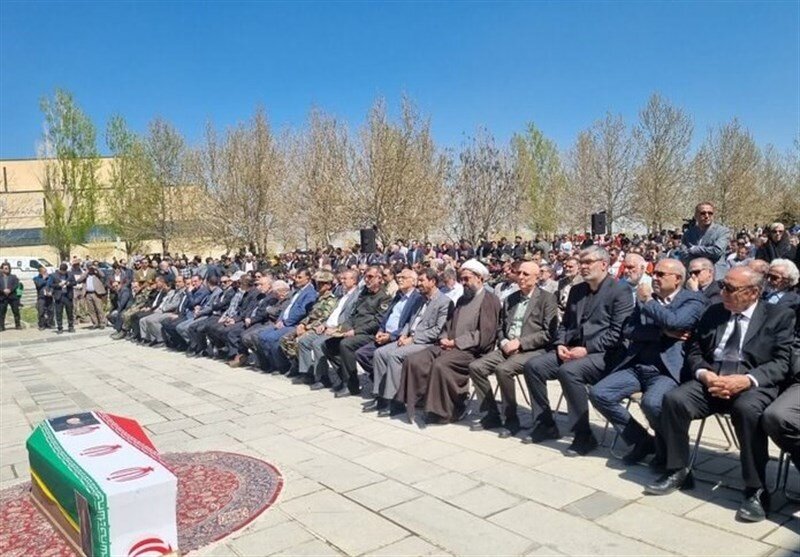Nuclear program architect Dr. Akbar Etemad laid to rest in Hamedan

TEHRAN – The body of Dr. Akbar Etemad, widely regarded as the father of Iran's nuclear program and the founding president of Bu-Ali Sina University in Hamedan, was laid to rest on Monday in the city's Bagh-e Behesht Cemetery.
The funeral, held in the courtyard of Bu-Ali Sina University Mosque, drew a wide array of mourners including senior national and local officials, military representatives, university faculty, and students.
Hamedan Governor Hamid Molanouri-Shamsi, speaking at the ceremony, extended condolences to Iran’s scientific community and Dr. Etemad’s family, lauding the late scientist’s unique role in advancing the country’s scientific and industrial capabilities. A separate funeral ceremony had also taken place in Tehran on Saturday to honor his memory.
Born in 1930, Akbar Etemad began his academic journey in electrical engineering at the University of Lausanne in Switzerland, where he later earned a doctorate. He went on to conduct groundbreaking atomic research at the Swiss Federal Institute of Technology, experience that would prove foundational to his work in Iran.
Returning to Iran in 1965, Etemad was appointed technical advisor to a key nuclear reactor research initiative. Just a year later, he established the Atomic Energy Office within the national Organization for Planning and Budget, and became its director. His leadership and vision reached a peak in 1974 when he was appointed the first president of the Atomic Energy Organization of Iran (AEOI), a post he held until the 1979 Islamic Revolution.
Dr. Etemad was an unwavering advocate for Iran’s sovereign right to develop nuclear energy, repeatedly underscoring its importance for national progress. He was also openly critical of the West’s handling of nuclear diplomacy and remained skeptical of the International Atomic Energy Agency's political impartiality, urging a principled and peaceful path forward for Iran's atomic ambitions.
After the Revolution, Etemad relocated to France, where he lived until his passing.
Leave a Comment